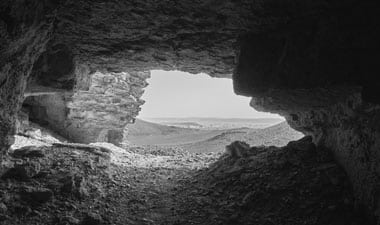
Choosing a Spiritual Director – Does it Matter?
Spiritual direction can be applied to most faith traditions, but at Directional Faith, the focus is on Christian spiritual direction. Why do I focus solely on Christianity? Because I believe that I can best serve you as a Christian spiritual director – while not trying to be everything to everybody.
Modern Spiritual Direction
First, many modern spiritual directors are open to seeing clients of any faith tradition, whether they are Christian, Muslim, Hindu, Buddhist, or “just spiritual.” In sessions like these, they may use more universal terms for God and try not to reference Jesus, God the Father, the Holy Spirit, or even the Church itself.
Another difference is that the approach of many modern spiritual directors centers around reflective listening. This is an approach where the director simply listens and asks reflective questions back to the directee with the hope of inspiring them to search for the answers within themselves. This has evolved from modern therapy practices attributed to Carl Rogers. My approach is a little more direct, and 100% focused on developing a relationship with Christ.
While these are valid approaches to spiritual direction, my goal is to take Directional Faith in a different direction. For those of a different faith background, here is a link to finding a spiritual director of your own faith background.
Modern Christian Spiritual Direction
New ideas in society help the church to continue to grow in the modern world, but that does not mean that we need to abandon the traditional practices that have been successful for countless generations. With that in mind, I plan to blend modern technology, tools, and techniques with traditional Christian spiritual direction.
First and foremost, I believe that a deeper faith begins with a more intimate relationship with Jesus through the Holy Spirit. Using universal language for God will not allow us to accomplish that goal. We may come from different denominations, but we can find commonality in Jesus.
Second, I believe in a more direct relationship. Reflective listening can work in the right situations, but it is not the only approach. Modern psychology itself acknowledges this. Assuming that all of my directees simply need me to ask the right question is simplifying things too much.
Spiritual Direction for Every Christian
One question that comes up is whether to see a director from a different Christian denomination. For that question, I will leave you to discern the answer. But for a little insight, I believe that it may depend on the situation.

First, you should understand my own faith background. I grew up and was confirmed in the Lutheran church (although faith did not stick at that point). Years later, I first found Jesus on my own. At first, I was alone on the journey, but I eventually settled into Evangelical and nondenominational churches. A decade later, I chose to convert to Catholicism, which is where I fell in love with St. Ignatius of Loyola over 10 years ago.
I mention my background because I believe that it allows me to empathize with a variety of Christian denominations. As a former Lutheran, I feel at home speaking about mainline Protestant traditions. As someone who was “born again,” I am comfortable with Evangelical ideas. And as a Catholic convert, I am well-versed in more traditional theology.
If you are discerning the life of a Protestant pastor, you might want to consult one. At the same time, you may want an independent view of the matter, which I can provide. For the most part, though, if you believe in the Father, Son, and Holy Spirit, most Christian spiritual directors can be of service to you.
Generally, most of us would agree with the tenets of the Nicene Creed, first published in 325 A.D. – long before we splintered into a million denominations. If we can find common ground in that, we can go from there.
Spiritual Direction’s Christian History

In the early church, many chose to leave city life to approach a life closer to God, and they did this by moving to the desert. The desert fathers, as they are known, became spiritual guides for many people that wanted to develop a stronger relationship with Jesus, as well.
Spiritual direction in this context was very direct. In fact, complete compliance was expected. It is definitely at the other end of the extreme from reflective listening. Reflective listening is a very passive approach, whereas the spiritual direction of the desert fathers was more direct (hence the name, spiritual direction).
Learning from the more direct approach of the desert fathers, blending in modern reflective techniques, and focusing on cognitive spirituality, I hope this approach helps the church grow in the 21st century.
What’s Next?
When you’re ready to take the next step, book your FREE, no obligation consultation.
